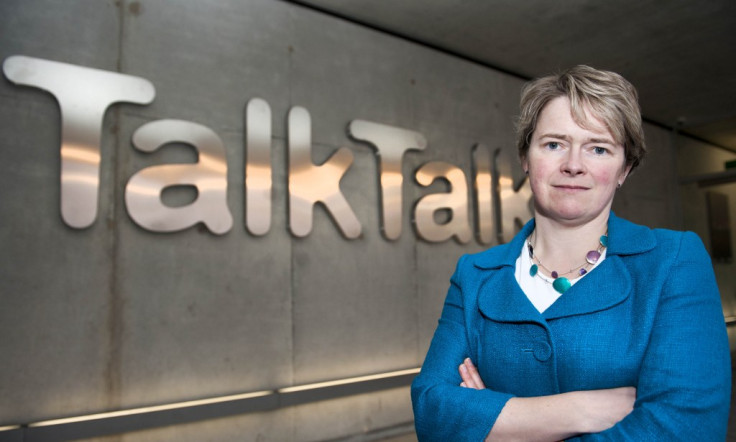TalkTalk CEO Dido Harding received £2.81m in 2015 when the company suffered a cyberattack

TalkTalk chief executive officer Dido Harding received an additional £1.8m ($2.6m) in 2015 from the company when it was hit by a cyberattack. According to the company's annual report, it paid Harding £2.81m in 2015, as opposed to £1.05m a year ago.
The increase in the payment was due to a £1.97m payout under company's long-term incentive plan. Harding donated the bonus amount of £220,000 to the charity, Ambitions about Autism, suggests a Guardian report.
The company said Harding would have been eligible for getting £343,000 under the terms of bonus plans but, "in the context of the cyberattack on TalkTalk and after careful consideration, the remuneration committee has exercised discretion and determined that the annual bonus should be at a reduced level".
The attack in October 2015 on TalkTalk's website is considered to be one of the biggest cyberattacks in which 156,959 customers had their personal details accessed. Of these, 15,656 bank account numbers and short codes were stolen; 28,000 credit and debit card numbers were obscured and could not be used for financial transactions. Harding earlier revealed that the police advised the company to keep the attack a secret so that detectives could carry out their investigation and arrest those responsible.
The details about Harding's pay emerge as the parliamentary committee on culture, media and sports wants the earnings of the chief executive of the company to be linked to the security of the company's computer systems.
The committee published a report based on an investigation of the TalkTalk security breach. The MPs said the company had not taken enough steps to withstand an attack on its system. The MPs recommended a slew of guidelines with regards to the cybersecurity of the company.
Jesse Norman, the chairman of the committee, said: "Failure to prepare for or learn from cyber-attacks, and failure to inform and protect consumers, must draw sanctions serious enough to act as a real incentive and deterrent.
"As the TalkTalk case shows, the reality is that cyber-attacks are a constant, evolving threat. TalkTalk responded quickly and well to this attack, but appear to have been much less effective in the past, failing to learn from repeated breaches of different kinds," added Norman.
In the annual report of the company, Sir Charles Dunstone, TalkTalk chairman, said the company managed to recover significantly since the cyberattack last year. He said: "By communicating honestly with our customers to help them protect themselves, we not only set a new standard of openness and transparency for large businesses dealing with such challenges, we also demonstrated that TalkTalk is a business brave enough to put our customers' interests first."
© Copyright IBTimes 2025. All rights reserved.





















